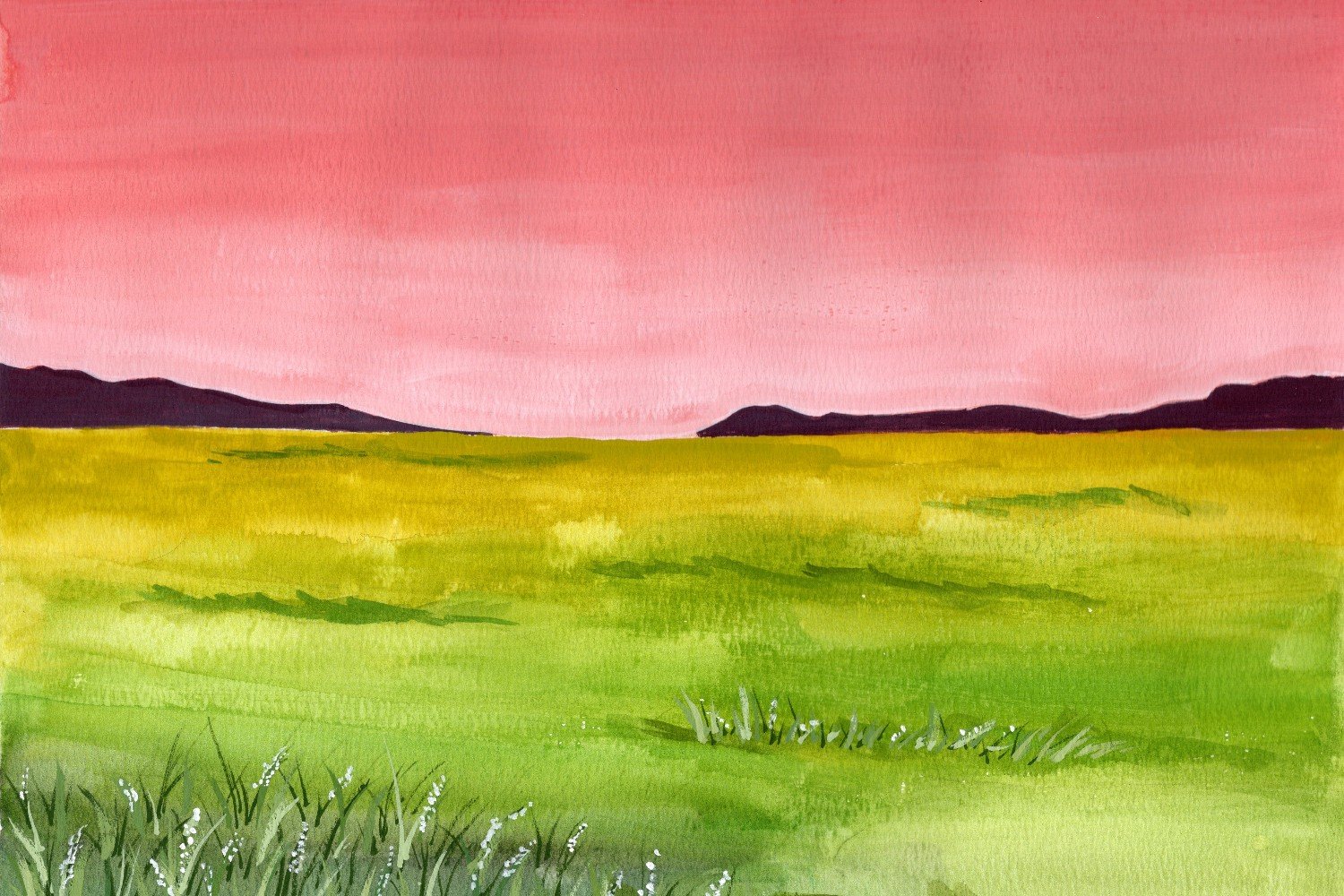How Fasting Helped Me Relieve Anxiety and Find Clarity
Photo by Alice Alinari on Unsplash
This is part three of my multi-part series on my experience going on a two-week water-only fast at TrueNorth Health Center in Santa Rosa, CA. You can catch up on parts one and two below.
If you read my blog, you’d probably know that I love a good opportunity to work on myself. The medical literature I'd read before departing for our fast didn't say much about the mental and emotional benefits of fasting. The research on fasting was sparse, anyway, and performed by medical researchers, not psychologists. When my aunt told me about her fasts at TrueNorth, she only mentioned that she got really bored and weak toward the end. So I went in expecting to be bored, tired, and foggy the whole time. That was partly true, but there was also more.
Around halfway through our two-week fast, the days started blending, and I was getting tired of the hobbies I'd brought with me. As I mentioned last time, even though my mind was clear, doing anything tired me quickly. My hobbies didn't feel as fun as they usually did. TV shows and lectures wore me out after a couple of hours. Sometimes I'd turn everything off and lie in bed.
Before we left, I thought this trip would be an excellent opportunity to meditate more. I had started practicing mindfulness meditation to reduce anxiety, and it was working. However, I wasn't always consistent with my practice, so I thought this trip would give me time to meditate daily.
I used my guided meditations maybe twice, but I often meditated less formally. I spent a lot of time resting my mind, just letting it drift while falling asleep and waking up. We took a lot of naps. Unlike my usual attempts to meditate, I found that my mind on a fast didn't have the usual chatter, so meditation felt easy and natural.
It made sense why fasting is a part of most religious traditions—it can make clearing the mind easier. I felt relieved to close my eyes and not think, noticing how much effort it took to have my attention occupied. It seemed like my brain didn't have the energy to run a mile a minute. At the same time, there was a slight unease under the surface that also made me not want to meditate for too long—my body never felt comfortable. That unease seemed normal for fasting since the body can hardly survive if it's entirely cool with not eating.
Dealing with Self-Criticism and Disappointment
Toward the end of the fast, I realized I'd started processing my experiences differently without realizing it.
I mentioned last time that a day after we arrived at TrueNorth, I turned in an essay for a Medium writing contest. I'd spent the previous month on it, working up to the deadline and struggling with my perfectionism. As soon as I hit submit, I immediately thought, "well, that sucked." I just knew it wasn't good enough to win any awards, and I felt terrible about myself for days. I even questioned whether I was good enough of a writer to keep writing.
But several days into the fast, something began to lift. I asked myself what I intended by entering the contest. I had wanted to challenge myself and had hoped to get an honorable mention, which would come with some publicity and validation as a writer. Then once I started writing, I lost myself in the kaleidoscope of comparisons, trying to meet other people's expectations while finding fault with everything I wrote.
My enthusiasm for a new challenge slipped into my hopes of proving my worth as a writer. And my worth as a writer proves my worth as a human being. I knew this belief came from the cultural conditioning that achievements give us value and status—it's been one of my most challenging to overcome.
But I'm now aware enough to question that belief—eventually. So I asked myself, "does winning a contest prove anything about me?" Sure, it would be nice to be recognized, but I didn't have to be an award-winning writer to share my work. My goal was not to be the "best" writer anyway, just an authentic one. Moreover, this was my first time entering a writing contest in a very long time. So maybe it was okay to have room for improvement.
I noticed these softer conclusions around the second week of the fast. Instead of reacting to my experiences, I found myself pondering and digesting them. Reacting to our experiences means we have underlying assumptions about what that experience means. We can either feel defeated or attempt to defend ourselves from that meaning. In the past, I've often avoided writing to avoid finding out that I might not be good enough to succeed at it. It wasn't conscious, of course. I just felt it as anxiety.
It wasn't until we'd completed the fast that I learned fasting calms the autonomic nervous system, which governs the fight-or-flight response. My attending doctor also told me that fasting often relieves anxiety. If I'd known that before coming, I would've been all over it.
Of course, it also helped that we had three weeks off with no obligations, which gave me more space to process my experiences without the pressure of the daily grind. The fast and this downtime gave me more peace with myself than I've ever had.
That peace lasted about two months after we returned until I got triggered again by challenges I took on in November. But now that I recognize what it feels like to review my experiences instead of reacting, it's easier to get back there.
The Pleasure Trap
Dr. Goldhamer, the founder of TrueNorth, wrote The Pleasure Trap: Mastering the Hidden Force that Undermines Health & Happiness. It discusses how modern society has subverted our innate drive to seek pleasure and avoid pain by allowing us to reach those states without the work involved. Yet, intensifying pleasures doesn't give us true happiness.
The biochemistry of pleasure and happiness is fascinating. Throughout our evolutionary history, the pursuit of pleasure was intertwined with feelings of happiness. We were driven by the potential rewards of food and sex, which feel pleasurable due to the release of the neurotransmitters dopamine and endorphins. But we couldn't get to these states without physical effort. We had to hunt and gather food or work in the fields and raise livestock. Those moments of dopamine-induced peak experiences were short-lived, which gave us fuel to continue seeking them. While we're working toward these worthwhile goals for survival and mating, serotonin is released to encourage us with a sustained, pleasant feeling of happiness that can last for hours.
In the last hundred or so years, we've turned this evolutionary dynamic on its head. We've created shortcuts to peak dopamine experiences without the effort that gives us serotonin and its sense of happiness. Since dopamine takes more energy to sustain and is short-lived, it can leave us feeling empty. On the other hand, serotonin levels increase with exercise, a healthy diet, adequate sleep, and most importantly, feeling that we're on the right track toward a meaningful goal.
Many of us work at a desk and commute by driving (or work from home these days), so exercise isn't a natural part of our day. We've made foods tastier by adding salt, sugar, and oil to everything regardless of nutritional value. We use alcohol, drugs, and medications to increase pleasure or dull our pain without addressing the underlying causes of our mental or physical imbalances. We use coffee to get going in the morning and sleeping pills to wind down at night instead of listening to our natural need for sleep and rest. We lose ourselves in movies, TV, and video games to feel excitement, and our senses become dulled to the subtler pleasures of daily life. But by isolating pleasurable experiences from the work involved, we get stimulated without a natural sense of meaning and happiness.
Instead of falling prey to the "pleasure trap," Dr. Goldhamer suggests that by removing these hyper-stimulating foods, substances, and entertainments from our lives, we allow our bodies to return to their "true north" that guides us to health and happiness according to our internal compass.
Under usual circumstances, I would've thought, "that sounds nice, but I'm not giving up my favorite foods." But I was in a place where I had nothing to do but lie there and ponder what I'd been reading.
A Moment of True North
Over the next few days, I thought about how the pursuit of pleasure may have kept me from true happiness. For me, it's not the food or stimulants so much as the video games. I play video games to relax and rest my mind from work, but I would often play for hours even if I had other things to do. I can neglect my writing, painting, reading, cooking, cleaning, going outside, etc., because the games were too engaging and gave me immediate "payoff." But those payoffs aren't real, and even the best storytelling and gameplay can make me feel more disconnected from my life if I played for too long.
By overstimulating myself with video games, the activities that fulfill me over the long run, like writing and art, can feel as bland as food without salt on them. I didn't want to desensitize myself with instant gratification anymore.
When I started my accounting business, it was so hard because I had to learn self-motivation and feel fulfilled by my daily efforts. I didn't have a boss and a paycheck to motivate me. I was at a similar place with my writing, and I didn't want entertainment to distract me. It was hard enough on its own.
I realized it was time to take a break from video games.
As for Tex, he also had his realizations as we discussed stimulation, food, and what was meaningful for us. I told him he had to help me cook if we wanted to change our diet, because going without salt, oil, and sugar meant we couldn't eat out like we were used to. Without hesitation, Tex said he would do it and, in addition, he would cut his workload in half so he had the time.
I was shocked. Tex had been talking about retiring at seventy for years. But when the time came, he couldn't let go of the income just yet (even though he had enough to retire on), so this was an unexpected change of heart. He knew that working as hard as he did put undue stress on his body, and he'd amp himself up with coffee and pastries to go to work every morning. Reducing his workload would contribute to his health in more ways than one.
I attributed these profound changes of heart not just to reading The Pleasure Trap but having the time to think about its ideas without our usual reactions. These changes truly felt like a redirection to our "true north, " making me feel more aligned and happy. Though, alas, actually carrying them out in the real world wasn't as easy.
In the final part of this series, I'll discuss the experience coming out of the fast, challenges to changing our diet, adjusting to living with Tex's diabetes.
Recent Posts
Thanks for reading! I’d love to hear what you thought of it. Feel free to comment below or on my social media accounts.
If you enjoyed this piece, please consider making a contribution so I can spend more time doing it. Your support is greatly appreciated. ❤️






























